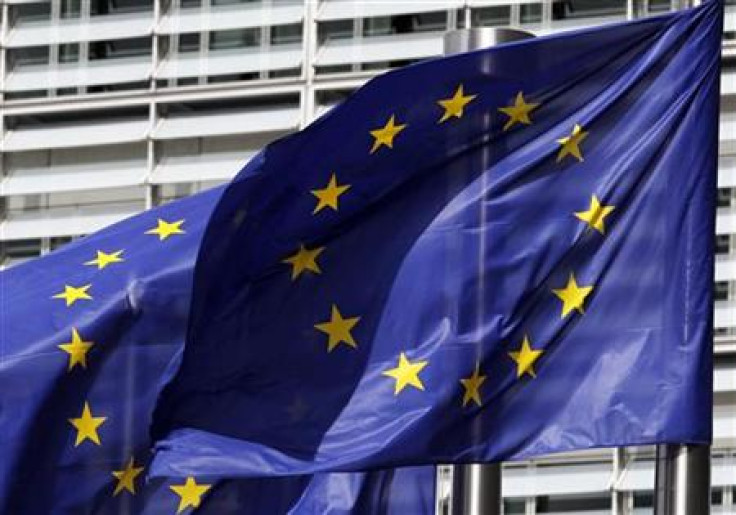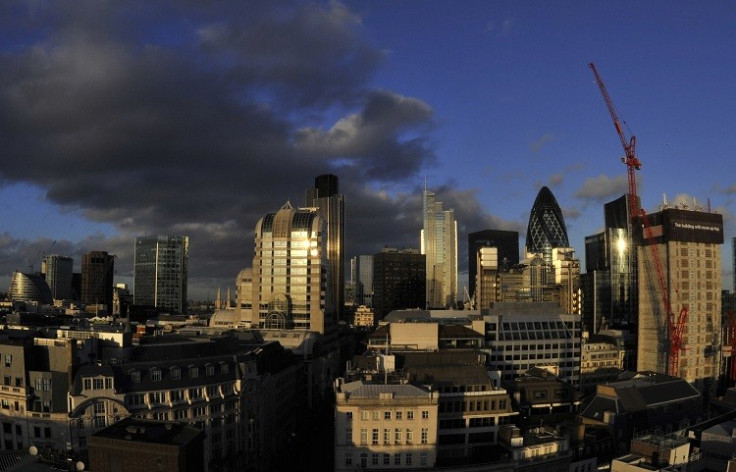Is EU Withdrawal a Greater Threat to UK PLC than 50p Tax Rate?

It was an absolute given that when Labour's Ed Balls announced he would increase the top rate of tax to 50% the business community and sections of the media would go into full attack mode. And they didn't fail.
Within hours of the announcement, newspaper headlines screamed about Labour's politics of envy, going back to the socialist dogma of the 1970s and the devastating effect it would have on British business.
Days later, at a Federation of Small Businesses conference, prime minister David Cameron led the assault declaring, with the support of many of those present, that the policy would be bad for business.
And there have been any number of claims it would stifle investment, destroy jobs and halt the recovery.
Meanwhile, there is another policy which many in business find just as frightening and destructive and certainly longer-lasting, and that is the UK withdrawing from the European Union.
With the EU providing a market of 500 million consumers and worth some £15 trillion to business, senior figures in industry and the City fear that is exactly where the government's pledge of an "in-out" referendum is leading.
So the question arises over which of these two policies would actually cause the most damage to the UK economy and business and enterprise.
As far as the 50% tax rate goes, Balls has insisted it would be a purely temporary measure, based on fairness and which could be repealed the moment the deficit had been eliminated in the lifetime of the next parliament.
Squeals about "back to the 1970s" don't wash. Top tax rates then, even under Tory premier Margaret Thatcher, were much higher. In 1971 the top rate of income tax was "cut" to 75%, but was 90% when investment income was included. By 1974 it had gone back up to 83% and 98%.
For most of Thatcher's years in power, the top rate stood at 60% although it was eventually reduced to 40% by 1988. Cameron is happy to see the rate remain at 45% but draws the line at 50%, at the same time claiming it probably won't raise much money.
In an open letter to the Daily Telegraph, 24 business leaders wrote: "These higher taxes will have the effect of discouraging business investment in the UK.
"This is a backwards step which would put the economic recovery at risk and would very quickly lead to the loss of jobs in Britain."
It was quickly pointed out that the group included big donors to the Tory party and that there is a lack of real evidence to back their claim.
Eight out of 10 CBI members, large and small, would vote to stay in the EU if there was a referendum on membership.
The Confederation of British Industry's John Cridland declared: "The UK must be open for business and a 50p rate would put entrepreneurs off from coming and investing in jobs here."
Indeed, some of the most vocal cheerleaders of the 'attack on wealth' narrative are rightwing Conservatives who have been agitating for a British exit from the European Union. The pressure of this vociferous lobby forced the Cameron to promise an in-out referendum in 2017 if the Tories win the general election next year. Polling predicts a 'Brexit' - Britain leaving the EU.
This would be an historic moment and usher in seismic shift for the UK economy that could fundametally undermine investment, employment, growth and the standard of living of the British people.

Among the UK business community and big finance of the City of London, pulling out would be an earthquake that would take generations to rectify.
Thus, the opposition to withdrawal among the executive class is explicit. Cridland said last year: "For British business, the position is unequivocal – we must remain a member of a reformed EU.
"Eight out of 10 CBI members, large and small, would vote to stay in the EU if there was a referendum on membership," he said.
Meanwhile, there have been dire warnings about possible withdrawal from the EU by the likes of Nissan and Toyota who suggested they would have to reconsider their investment in the UK.
EU open access 'crucial'
Toyota, which exports 80% of its UK-based production to Europe, said: "The UK's membership of the EU has always been an important consideration for Toyota, from our original decision to invest here and indeed to this day.
"Like a lot of international investors in this country, open access to the European Single Market has been and remains crucial to our business success."
The motor industry is not alone but is joined by major financial institutions such as JPMorgan which claims the UK has far more muscle as a member of the EU.
The fear of these industries is that an "out" verdict in any referendum would do lasting, long-term damage to the UK economy. Against that, a temporary 5% increase in tax on income over £150,000 a year seems like small beer.
© Copyright IBTimes 2024. All rights reserved.







